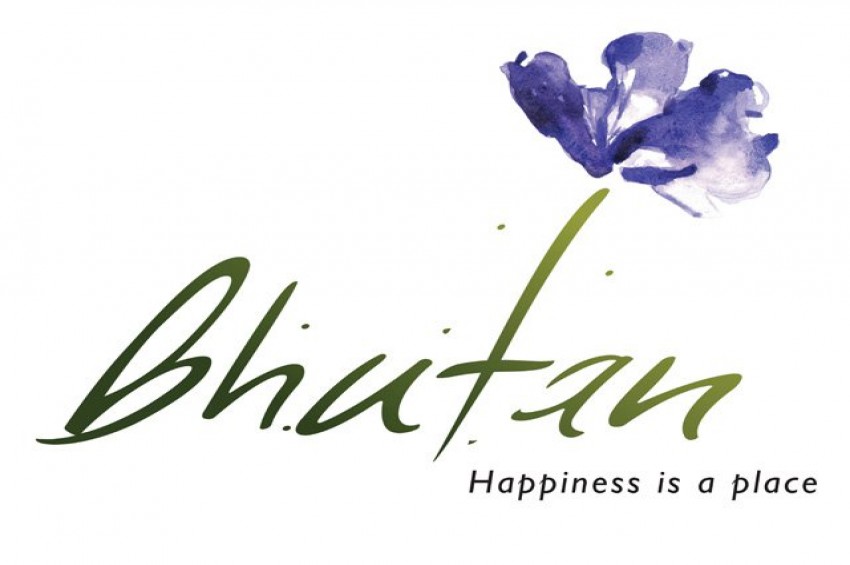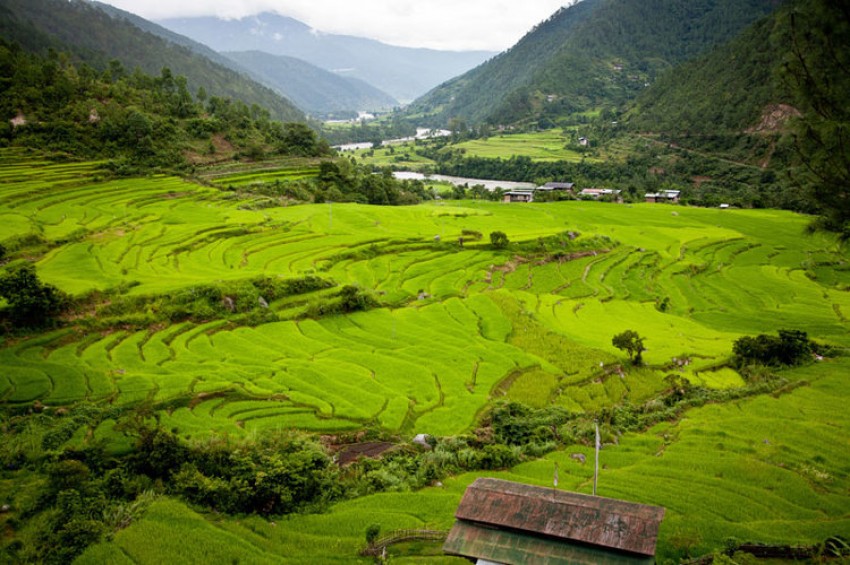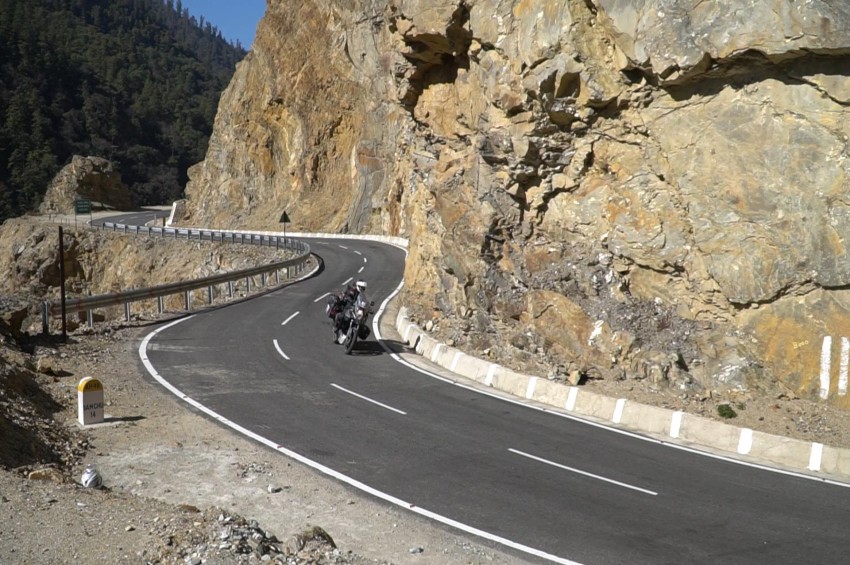PM and FM remain steadfast saying individual interests cannot be entertained
The Third Reading on the Tourism Levy Bill of Bhutan 2022 on June 23, 2022, saw emotions of National Assembly (NA) members running high; some trying to sit on the fence and others remaining silent. However, there was unanimity that the reform of the Tourism policy may not benefit Bhutan immediately, but it will in the long run. Thus, the discussion centered on providing stakeholders of the tourism industry some time (six months) for them to be prepared. This was shot down by both the PM and the Foreign Minister (FM) Dr. Tandi Dorji, with the latter saying that the government is prepared. Standing unwaveringly, the PM said that if such requests are entertained, it will be benefitting few interest groups and that after six months, the same people will again ask for extensions.
Reporting to the NA, Chairperson of the Economic and Finance Committee, Kinga Penjor, said that the Bill is supported by a majority of the people saying, that it is in the interest of the nation. He said there is also support for increasing the Sustainable Development Fee (SDF) to USD 200. However, he said stakeholders are asking for the revision to be postponed by one to two years, by which time they would be prepared.
Support for time extension came from the members of the ruling party and the opposition, with the Opposition Leader, Dorji Wangdi saying that the business of tourism, unlike others takes time.
“While discussing with the tour operators, we came to know how long it takes for them to confirm arrivals with the tourists. It cannot be done overnight. It takes time. Considering all these, it would give them the time to prepare even if it can be extended by six months.” He also said that the decision taken immediately would tarnish goodwill Bhutanese agents have developed abroad.
Responding to the above, Foreign Minister Dr. Tandi Dorji said that it’s been more than a year since the Tourism Council of Bhutan (TCB) has been working. He said the TCB is ready and cited examples of visas that can now be delivered even during holidays and the training of guides. The minister further said that discussing with interest groups only is not proper and that if real discussions are to be held, it should be done with the people of Bhutan. The FM further cited expert views that the tourism industry will be hit until 2025.
Meanwhile, the PM underlined that even if an extension of six months is given, at the end of the period the same issues will be cited and extensions asked again. He also said that the committee has talked with hoteliers, but questioned if they talked with those working in the hotels at wages of 5,000 to 7,000 per month. Further, the PM remarked that when reforms and changes are made there will definitely be problems. However, the problems need to be solved.
The Minister of Agriculture and Forests mentioned the discussions say that about 50,000 people working in the hospitality industry would be affected. He reminded the House about His Majesty saying that “bold” decisions have to be taken and then questioned if the number of people who would benefit has been considered. He added that the House and members seem to be concerned about the ability of the tourists to pay the USD 200 SDF and that even before implementation, members seem to have decided that tourists will not come to Bhutan. The minister further underscored that the decisions taken today are not something inscribed permanently on a rock and that if these are not good for the country, it can always be altered.
Meanwhile, a tour operator said that the decision would definitely affect operators like him. “I have already got bookings and will now have to tell my clients that the government has changed the policy. There are many like me,” he said. When asked if these tourists would not come paying the USD 200 SDF, he said that few may come. “But I am not sure. Some are those who have come earlier and who used to say that Bhutan is really becoming like Nepal and we are losing our exclusiveness,” he said, underlining that the government and the TCB should come out with very clear messages of why this reform has been undertaken.
Meanwhile, those observing the discussions and following the government’s decision say that the government has taken the right decision. A senior civil servant said that the World Tourism Organization (UNWTO) has mentioned in one of its recent reports that now is the time for all countries to prioritize tourism and back the sector through post-COVID recovery and beyond and that the time is now to build a new governance structure for tourism. He remarked that it is mentioned that governments need to place tourism at the centre of development policies and the private sector can contribute to greater coordination and partnerships as well as new innovative financing.
He quoted the UNWTO saying supporting tourism at this crucial juncture will provide a lifeline for the most vulnerable in society, empowering them through jobs and education. According to him, the report also highlights that at present, about 80% of the sector is made up of small and medium-sized businesses, many of them individual or family-owned enterprises. This shows the fragility of the sector but also its unique ability to drive transformation and development from the grassroots up and that the restart and recovery of tourism will, in turn, help drive global inclusive recovery and build resilience against future shocks.
The Third Reading on the Tourism Levy Bill of Bhutan 2022 on June 23, 2022, saw emotions of National Assembly (NA) members running high; some trying to sit on the fence and others remaining silent. However, there was unanimity that the reform of the Tourism policy may not benefit Bhutan immediately, but it will in the long run. Thus, the discussion centered on providing stakeholders of the tourism industry some time (six months) for them to be prepared. This was shot down by both the PM and the Foreign Minister (FM) Dr. Tandi Dorji, with the latter saying that the government is prepared. Standing unwaveringly, the PM said that if such requests are entertained, it will be benefitting few interest groups and that after six months, the same people will again ask for extensions.
Reporting to the NA, Chairperson of the Economic and Finance Committee, Kinga Penjor, said that the Bill is supported by a majority of the people saying, that it is in the interest of the nation. He said there is also support for increasing the Sustainable Development Fee (SDF) to USD 200. However, he said stakeholders are asking for the revision to be postponed by one to two years, by which time they would be prepared.
Support for time extension came from the members of the ruling party and the opposition, with the Opposition Leader, Dorji Wangdi saying that the business of tourism, unlike others takes time.
“While discussing with the tour operators, we came to know how long it takes for them to confirm arrivals with the tourists. It cannot be done overnight. It takes time. Considering all these, it would give them the time to prepare even if it can be extended by six months.” He also said that the decision taken immediately would tarnish goodwill Bhutanese agents have developed abroad.
Responding to the above, Foreign Minister Dr. Tandi Dorji said that it’s been more than a year since the Tourism Council of Bhutan (TCB) has been working. He said the TCB is ready and cited examples of visas that can now be delivered even during holidays and the training of guides. The minister further said that discussing with interest groups only is not proper and that if real discussions are to be held, it should be done with the people of Bhutan. The FM further cited expert views that the tourism industry will be hit until 2025.
Meanwhile, the PM underlined that even if an extension of six months is given, at the end of the period the same issues will be cited and extensions asked again. He also said that the committee has talked with hoteliers, but questioned if they talked with those working in the hotels at wages of 5,000 to 7,000 per month. Further, the PM remarked that when reforms and changes are made there will definitely be problems. However, the problems need to be solved.
The Minister of Agriculture and Forests mentioned the discussions say that about 50,000 people working in the hospitality industry would be affected. He reminded the House about His Majesty saying that “bold” decisions have to be taken and then questioned if the number of people who would benefit has been considered. He added that the House and members seem to be concerned about the ability of the tourists to pay the USD 200 SDF and that even before implementation, members seem to have decided that tourists will not come to Bhutan. The minister further underscored that the decisions taken today are not something inscribed permanently on a rock and that if these are not good for the country, it can always be altered.
Meanwhile, a tour operator said that the decision would definitely affect operators like him. “I have already got bookings and will now have to tell my clients that the government has changed the policy. There are many like me,” he said. When asked if these tourists would not come paying the USD 200 SDF, he said that few may come. “But I am not sure. Some are those who have come earlier and who used to say that Bhutan is really becoming like Nepal and we are losing our exclusiveness,” he said, underlining that the government and the TCB should come out with very clear messages of why this reform has been undertaken.
Meanwhile, those observing the discussions and following the government’s decision say that the government has taken the right decision. A senior civil servant said that the World Tourism Organization (UNWTO) has mentioned in one of its recent reports that now is the time for all countries to prioritize tourism and back the sector through post-COVID recovery and beyond and that the time is now to build a new governance structure for tourism. He remarked that it is mentioned that governments need to place tourism at the centre of development policies and the private sector can contribute to greater coordination and partnerships as well as new innovative financing.
He quoted the UNWTO saying supporting tourism at this crucial juncture will provide a lifeline for the most vulnerable in society, empowering them through jobs and education. According to him, the report also highlights that at present, about 80% of the sector is made up of small and medium-sized businesses, many of them individual or family-owned enterprises. This shows the fragility of the sector but also its unique ability to drive transformation and development from the grassroots up and that the restart and recovery of tourism will, in turn, help drive global inclusive recovery and build resilience against future shocks.

















